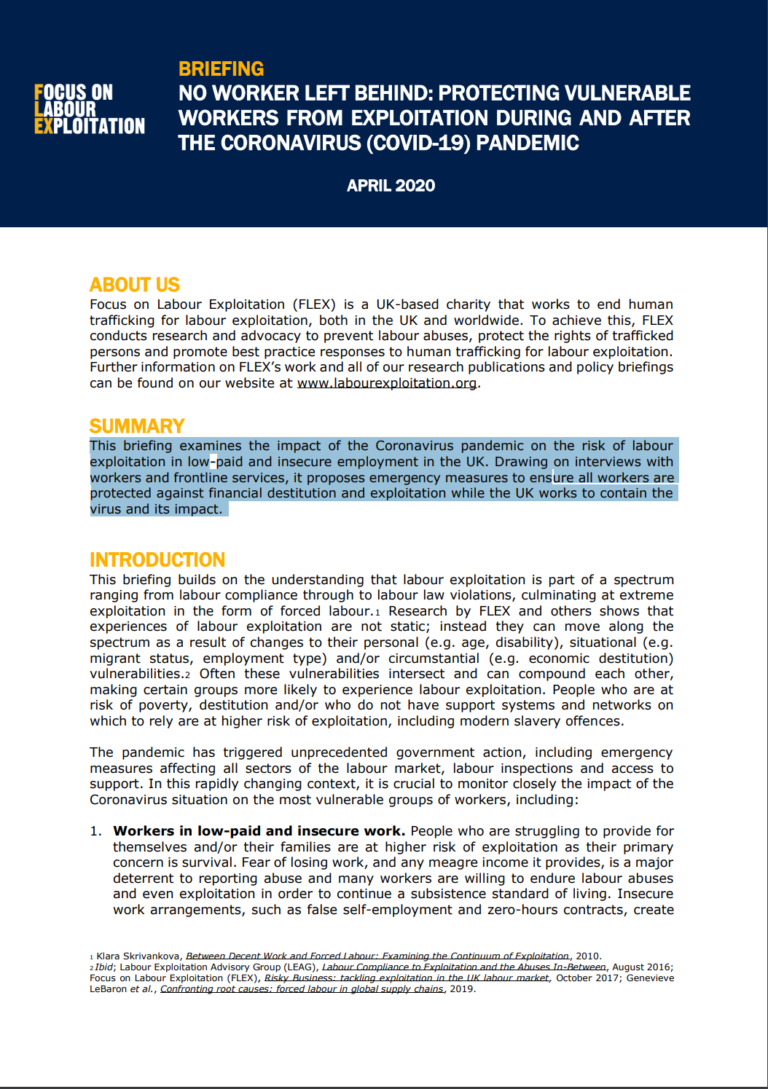This briefing builds on the understanding that labour exploitation is part of a spectrum ranging from labour compliance through to labour law violations, culminating at extreme exploitation in the form of forced labour. Research by FLEX and others shows that experiences of labour exploitation are not static; instead they can move along the spectrum as a result of changes to their personal (e.g. age, disability), situational (e.g. migrant status, employment type) and/or circumstantial (e.g. economic destitution) vulnerabilities.2 Often these vulnerabilities intersect and can compound each other, making certain groups more likely to experience labour exploitation. People who are at risk of poverty, destitution and/or who do not have support systems and networks on which to rely are at higher risk of exploitation, including modern slavery offences.

